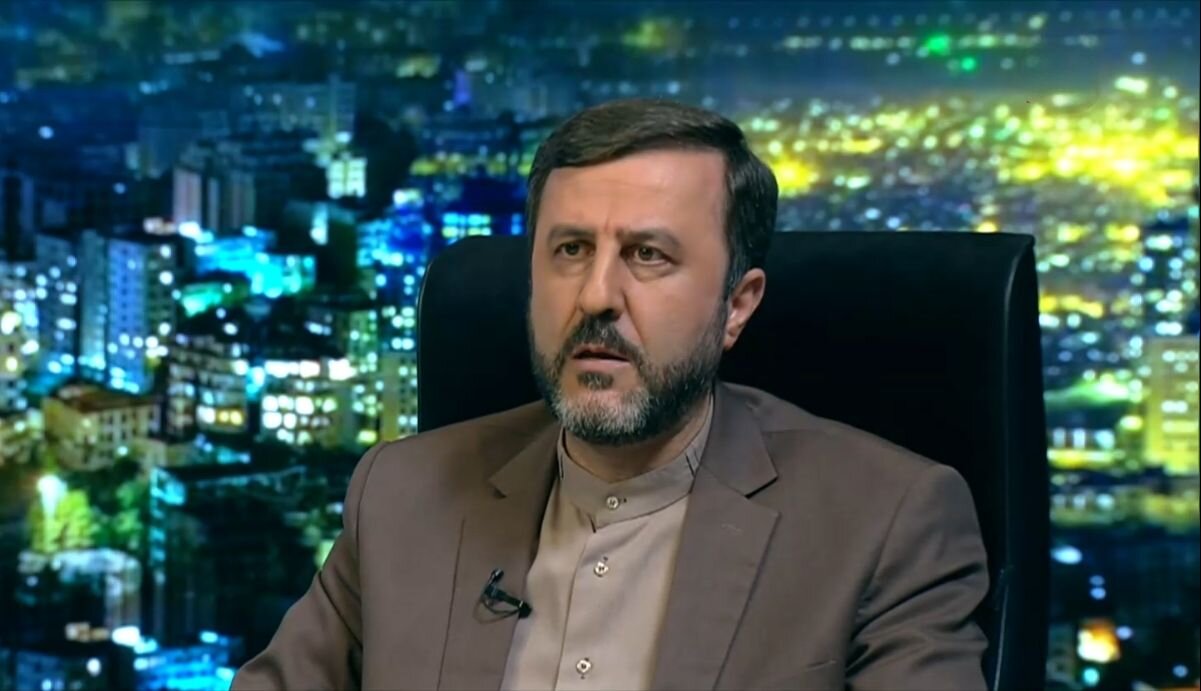European snapback bid would be ‘utter audacity,’ senior Iranian diplomat warns

TEHRAN – Iran’s Deputy Foreign Minister for Legal and International Affairs, Kazem Gharibabadi, condemned potential European efforts to trigger the snapback mechanism as an act of "utter audacity," warning that it would significantly curb talks with European counterparts and provoke proportional countermeasures.
In a televised interview on Sunday, Gharibabadi issued a sharp rebuke of the UK, France, and Germany (E3), challenging the legal validity of the UN Security Council’s snapback mechanism for reinstating sanctions and declaring the 2015 nuclear deal (JCPOA) effectively defunct.
“The United States quit the JCPOA in 2018, and the E3 failed to uphold a single pledge. For them to now accuse Iran of violations is utter audacity,” he stated.
He further warned that activating snapback would eliminate any remaining diplomatic space, including negotiations on sanctions relief: "If they resort to snapback, they remove themselves from all diplomatic interaction with Iran."
Gharibabadi reiterated Iran’s longstanding position that snapback is a coercive tool lacking legitimacy, designed to resurrect sanctions Iran has "already bypassed through economic resilience."
He confirmed Tehran is preparing for the E3’s move. Should Europe proceed, Iran would treat it as a "hostile breach" of the JCPOA, triggering countermeasures under Article X of the NPT, which permits withdrawal if a nation’s "supreme interests" are jeopardized. Such a step could suspend IAEA safeguards and accelerate enrichment beyond JCPOA limits.
The deputy minister also singled out the E3 for their "biased support" of the Israeli regime during the recent aggression against Iran, asserting they "undermined their own credibility."
Iran has rejected the UN Security Council’s snapback mechanism under Resolution 2231 as an illegitimate coercive measure designed to resurrect outdated sanctions it has already circumvented through economic resilience.
Tehran has long warned the UK, France, and Germany that any attempt to invoke snapback will be met with robust, proportionate countermeasures, plunging relations to their lowest point and jeopardizing future talks.
Senior officials, including Deputy Foreign Minister for political affairs Majid Takht-Ravanchi, have signaled that triggering snapback could prompt withdrawal from the NPT under Article X, suspend IAEA safeguards, and enable enrichment beyond JCPOA limits as a legal countermeasure.
‘We used minimal missiles’
Reflecting on the Israeli regime’s 12-day war on Iran, Gharibabadi described it as a strategic triumph for Tehran.
He argued that the Israeli regime’s goals extended beyond nuclear facilities to regime change and systemic collapse.
“If we look at it this way, which is indeed the case, victory or defeat shouldn’t be judged by statistics alone but by whether strategic goals were achieved,” he said.
Despite losses, Iran inflicted significant blows. “We also dealt heavy damage to the Zionist regime,” he noted, pointing out Israel’s censorship of strike impacts while Iranian media openly broadcast its losses.
He emphasized Iran’s restraint. “Who would believe that the Zionist regime, which defeated so many Arab countries in the Six-Day War, engaged in a 12-day war with us and didn’t win?” Gharibabadi asked.
“We still hadn’t used many of our advanced military equipment, and the number of missiles we deployed was minimal.”
Post-conflict, Iran’s national unity has surged, countering U.S. and Israeli efforts to alienate its people. “After the 12-day war, we are witnessing cohesion and national unity,” he said.
Gharibabadi highlighted Iran’s enhanced regional standing, with Muslim nations now viewing the Israeli regime as the primary threat.
“They couldn’t believe a country could put this regime in its place, forcing it to request a ceasefire through the U.S.,” he said. “We never pushed for a ceasefire; our resolve to keep defending remained unwavering.”
Talks under aggression 'fundamentally meaningless'
Gharibabadi also addressed recent U.S. diplomatic messages seeking a return to negotiations, revealing that Washington had signaled readiness for talks "from the outset of [the Israeli regime’s] aggression."
He confirmed that Foreign Minister Abbas Araghchi had received and broadly contextualized these overtures, which emphasized Washington’s "desire to resume diplomatic processes."
However, Gharibabadi underscored Iran’s strategic rejection of negotiating while under attack: "During those 12 days of conflict, discussing diplomacy was fundamentally meaningless."
While acknowledging that "diplomacy remains a key tool even in wartime," he stressed Tehran’s unambiguous stance: "As long as aggression continued and we were actively defending ourselves, sitting at the negotiating table held no purpose."
The remarks reinforce Iran’s long-standing policy of refusing to engage under coercion. Gharibabadi described the U.S. outreach as a tacit admission of diplomatic urgency, contrasting it with Iran’s disciplined adherence to principles: "Our position was clear—talks require sovereignty, not surrender to bombardment."
Leave a Comment